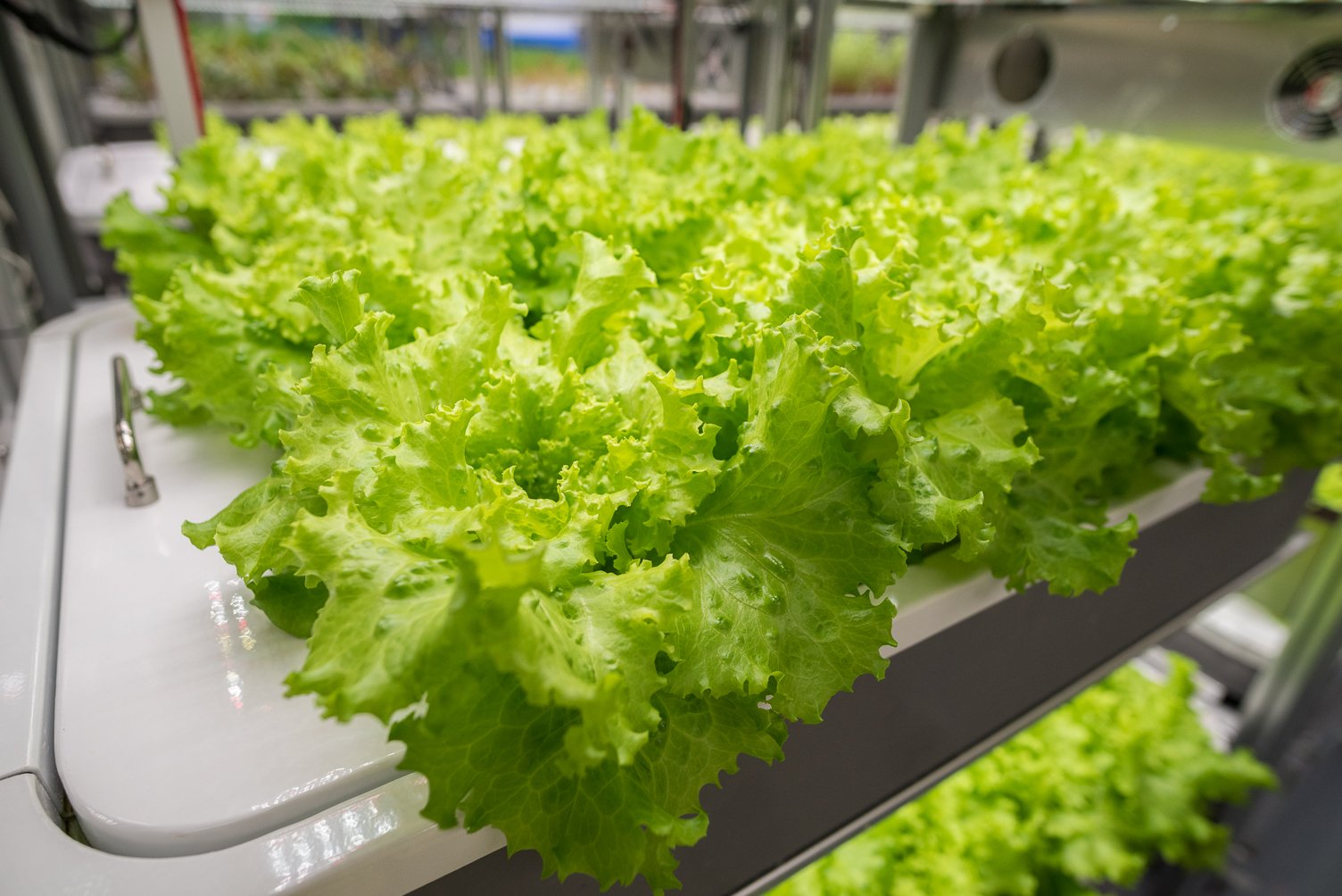Creating the First Vertical Farm Powered by Thorium
AEtrium 2.1 Smartfarm growing aeroponic greens at our Shanghai facility
Providing Clean, Reliable Energy
Vertical farming relies heavily on controlled environments, which require significant amounts of energy for lighting, climate control, hydroponic or aeroponic irrigation, and nutrient management. Thorium reactors, particularly molten salt reactors (MSRs), can provide a reliable, low-carbon, and consistent source of energy. Thorium reactors are capable of providing a steady, uninterrupted supply of power. Since vertical farming often requires 24/7 energy for lighting and climate control, a stable power supply is crucial.
Thorium reactors, which have inherent safety features and are less likely to fail catastrophically compared to conventional reactors, offers this reliability. Vertical farms are typically seen as a more sustainable way of producing food, especially in urban settings. If the energy to power these farms comes from thorium reactors (which are far safer than uranium reactors), it would significantly lower the carbon footprint of the entire farming operation.
Supporting Energy-Intensive Technologies
Artificial Lighting: Vertical farms often use LED lights to simulate sunlight for plant growth. These lights can be energy-intensive, but a thorium reactor could supply the necessary power without the environmental costs associated with fossil fuels or the intermittent nature of solar and wind energy.
Desalination and Water Purification: Many vertical farming systems rely on hydroponic or aeroponic systems, which use water in precise, controlled amounts. In regions with limited freshwater supplies, thorium reactors could be used to power desalination plants or water purification systems, making it possible to grow food in arid or water-scarce regions.
Climate Control: Maintaining the ideal temperature and humidity levels in vertical farms, especially in cold climates or areas with extreme weather conditions, is another energy-intensive requirement. A thorium reactor could provide the power needed for heating and cooling systems that regulate these environments.
Enabling Localized, Scalable Farming Solutions
Vertical farming is often seen as a solution to urban food insecurity. The combination of thorium reactors with urban vertical farms could create a localized food production system that is energy-efficient and environmentally sustainable.
For vertical farming operations in urban centers or remote areas, small thorium reactors could be deployed to provide localized, off-grid power. This would allow farms to become more self-sufficient and reduce dependency on centralized energy grids that might not be reliable or sustainable. Thorium reactors could be scaled to provide energy at different levels, from small modular reactors (SMRs) to larger facilities. This means they could be deployed in various settings, from urban areas where space is limited to remote locations in need of both power and food production capabilities.
Energy for Advanced Farming Technologies
Vertical farming often involves sophisticated automation for planting, harvesting, and monitoring crops. These systems require electricity, and thorium reactors could power these advanced technologies without the environmental drawbacks of conventional energy sources.
Some vertical farms use CO2 enrichment to boost plant growth. A thorium reactor could be used to produce the necessary CO2 through energy-intensive processes like carbon capture and utilization (CCU), further enhancing crop yields in controlled environments.
Long-Term Sustainability
Thorium reactors produce much less nuclear waste and pose fewer proliferation risks compared to uranium-based reactors. As vertical farming grows in prominence as a more sustainable agricultural practice, powering it with clean energy sources like thorium could reduce the overall environmental footprint of urban food production.
Energy for Food Processing and Distribution
Vertical farming is often paired with local food processing to shorten supply chains and reduce food waste. Thorium reactors could provide energy for the processing (e.g., washing, packaging, or cooling) and distribution of food grown in vertical farms, making the entire supply chain more energy-efficient and sustainable.



